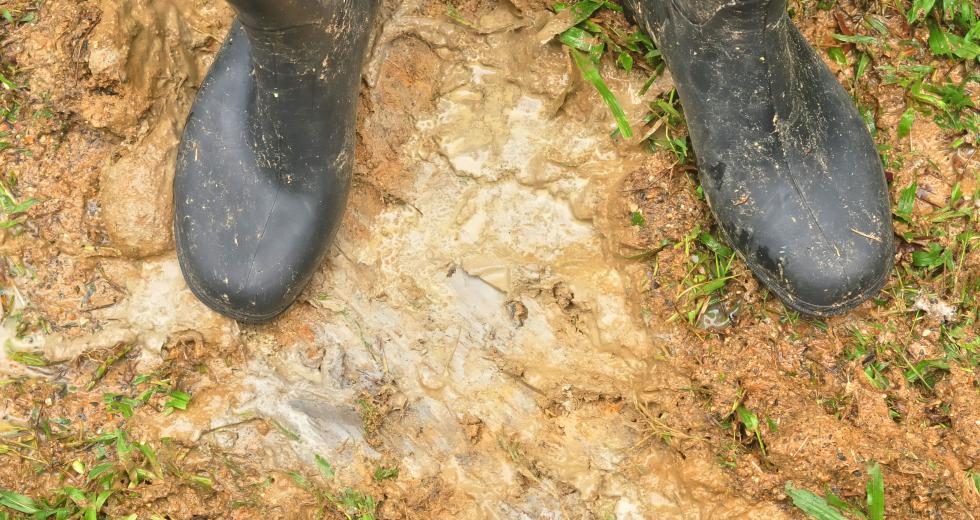Ron Finley deemed himself the “Gangsta Gardener” with pride. The Los Angeles resident is a big shot in the national urban gardening movement and isn’t afraid of stirring things up, as reflected by his nickname. “Farmers are badass — not the stuff they talk about in rap music, being high and drunk and robbing people,” he says. “Education is gangsta and sexy. That’s why gardening is a G-thang.”
In 2010, Finley became famous for planting vegetables in a dirt strip on a street curb outside his home in south Los Angeles, which was against city code. He fought for his right to garden — and won. “You can plant vegetables and you can sell them and you shouldn’t have to ask permission to sell them,” he says. “The fact that what I did was criminal is insane. We should know how to feed ourselves.”
Today, Finley gardens on, inspiring urban communities in Los Angeles and around the country to bring both beauty and economic opportunity to inner-city neighborhoods through fruits and vegetables. He wants children and adults alike to learn lessons from the garden — lessons about compassion, perseverance and patience. He recently paid a visit to Sacramento’s urban gardening community for a screening of his documentary film, “Can You Dig This” at the Guild Theater, an event hosted by the Yisrael Family Farms. He took a moment to chat with Comstock’s about how gardens can improve communities.
You caused a revolution with a carrot. Did you think you were creating a radical act at the time?
Not at all. By no means did I think I was being a renegade or a criminal. I would think that they would want everyone in the city doing that. Then you realize that all of this is by design. The liquor stores, dialysis centers — it’s all by design. Why are they in the black and brown community? Why do we have the perfect storm in our community? We have fast food. We have the drug stores to buy [pharmaceuticals] legally 24-hours a day. I’m in L.A. They don’t have that in Beverly Hills. My whole thing was to change the design.
There’s a lot wrapped up in a single carrot. There are layers to our broken food system. Talk about the issues of poverty, race and inequality that you see in your work.
It’s not the broken food system. It’s the broken systems: the education system, the prison industrial complex, the miseducation system. It goes so far beyond the food system. What I do is not about food; it’s about people first and foremost. … I’m trying to show people that we’re standing on resources called soil. Money does grow on trees — the tree itself is worth money.
If you don’t have a hand in your own food, you’re enslaved.
What about the role of education? Nelson Mandela said: “Education is the most powerful weapon which you can use to change the world.”
The school should be in the garden, not the garden in the school. Kids should not have to sit in a classroom all day. They need to climb and run and make things out of nothing. It’s so much bigger than food. It’s about changing culture.
Why did you create Can You Dig This?
What this film does that I haven’t seen a film do: It activates people. They see this and they go out and change their community. I can’t think of a movie that moved me to the point that I see the possibilities of what can happen. Except maybe “Rocky.”
Let’s talk about Sacramento. You’ve visited a few times now. What characteristics do you see in Sacramento that make our food movement strong?
You’re an agricultural city. I don’t think your food culture gets the exposure that it should. We have some hella chefs that are putting down some serious food skills. I was overjoyed to see what was happening with the food and in the urban communities. Sac High is a food school [with a food literacy program, school garden, kitchen classroom and student-run cafeteria]. That’s brilliant. Everyone should know how to feed themselves. It shouldn’t be a special skill. Some of the urban farms I visited I was thoroughly impressed with.
What qualities does a leader need to succeed in this work? What are some of the qualities you see in Chanowk from Yisrael Family Farm?
We care. [For leaders like Chanowk and me,] it ain’t about the paper. If you do good you should be compensated for it. We’re making it happen to shift this paradigm, this culture. The Yisrael family are culture-changers — the whole family. For us to change, we have to make this sexy. A check makes this sexy [to youth]. You put money in people’s pockets. We have to build this up so people want to be a farmer and gardener like wanting to be a ball player. That’s what [Yisrael Family Farm is] doing.
With us being African American, us educating people is harder because of slavery. We have this section of black folks who won’t touch soil but don’t realize that’s where the gold is. What we do is dangerous because we’re changing a paradigm.



